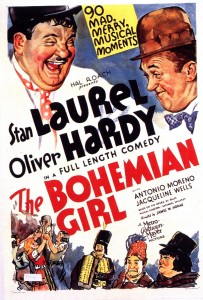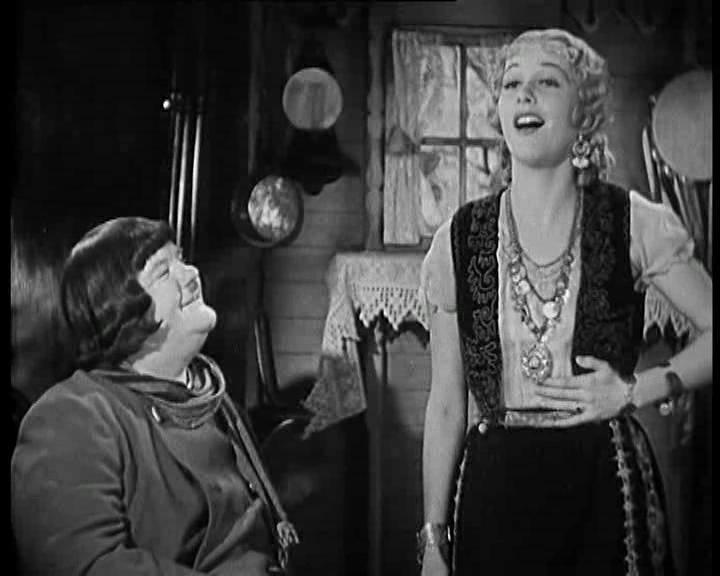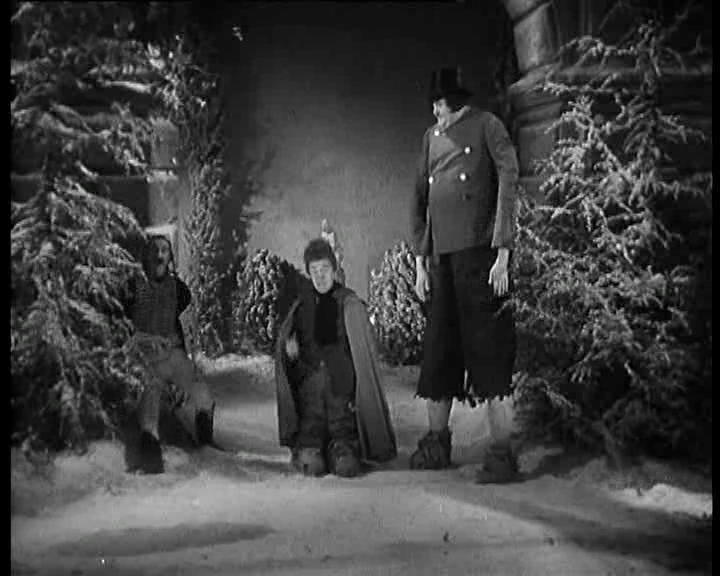“I can gyp that gypsy any time.”
|

Synopsis:
The two-timing wife (Mae Busch) of a gullible gypsy con-artist (Oliver Hardy) runs away with her lover (Antonio Moreno), leaving behind the kidnapped daughter (Darla Hood) of a local count (William P. Carleton). Arline (Hood) is raised by Hardy and his business partner (Stan Laurel), and even as a young woman (Julie Bishop) has no idea about her true identity.
|
|
Genres, Themes, Actors, and Directors:
- Comedy
- Con-Artists
- Cuckolds
- Gypsies
- Kidnapping
- Laurel and Hardy Films
- Musicals
- Royalty and Nobility
Review:
Laurel-and-Hardy fans are fond of defending this musical-comedy adaptation of Michael William Balfe’s 1843 opera, an innocuous melodrama which (not surprisingly) serves here as simply a narrative crutch for a series of semi-humorous L&H sketch pieces. The songs are primarily forgettable ditties warbled by a sound-stage full of would-be gypsies, though one — as Bishop croons the lovely aria “I Dreamt I Dwelt in Marble Halls” (more recently covered by Enya) — stands out as enjoyable enough to merit mention. Mae Busch (as Hardy’s wife) has fun with her role as perhaps the ultimate two-timing shrew, brazenly flirting with her lover in front of Hardy, but she’s not really given enough screen-time. Ultimately, this one will quickly fade from memory; diehard L&H fans will naturally want to check it out, but others can stay away.
Note: TBG is notorious as the final film of Thelma Todd, whose role was whittled away to hardly anything after her infamous “suicide” (considered by many to be murder).
Redeeming Qualities and Moments:
- Bishop (dubbed) singing “I Dreamt I Dwelt in Marble Halls”

- Creative visual effects at the very end

Must See?
No; this one is most definitely just for L&H fans.
Links:
|



One thought on “Bohemian Girl, The (1936)”
First viewing. Not must-see. Nope.
More unsurprising ‘comic’ antics from L&H. This time, they are sandwiched into an operetta of sappy distinction. It makes no difference. It’s still dull. The appeal escapes me completely.